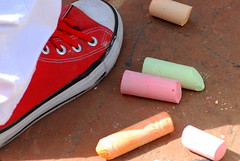The Nation
December 10, 2009
Rachel Roth
Over the past year, incarcerated women and their allies have achieved a remarkable string of victories against inhumane treatment. First, they persuaded the Bureau of Prisons to issue a new policy in October 2008 limiting the use of restraints on women who are in labor, giving birth or recovering after childbirth; the Marshals Service, which transports people in federal custody, followed suit. Next, they won legislation in the spring and summer of 2009 restricting the use of restraints on pregnant women in
These developments send a strong signal to the rest of the country to stop subjecting women to this dangerous and degrading practice. But what happens to pregnant women in prison before they wind up in chains at a hospital?
When women are brought to a hospital in shackles, the pain and humiliation they endure likely caps months of difficulty from being pregnant behind bars, months without adequate prenatal care or nutrition, or even basics like a bed to sleep on or clothes to accommodate their changing shape.
The lack of common sense and compassion with which imprisoned pregnant women are treated is chilling. Three stories illustrate the dangers women face when they cannot get anyone to take their medical needs seriously.
First, some women are not taken to the hospital until after they have already given birth, despite having informed staff members that they are in labor. Women wind up giving birth in their cells with the assistance of a nurse, corrections officer or cellmates. Others give birth in their cells with nobody to help. Both situations endanger the woman and her baby. Nineteen-year-old Terra K. screamed [2], pounded on the door and asked for the nurse in the Dubuque County Jail in
Next, some women never see their pregnancy result in a live birth. In the Collier County Jail in
Finally, corrections personnel neglect women who have had miscarriages. Michelle M. was punched repeatedly in the stomach [3] by two other prisoners in the
These are not isolated events; they are just a few that recently made the news. Institutions of confinement are not required to report the pregnancy outcomes of women in their custody. Until elected officials mandate such reporting, we will have to rely on the efforts of imprisoned women, journalists, human rights investigators, researchers, lawyers and advocates to document the reality of life for pregnant women inside prison walls. Reflecting on more than thirty years of experience, ACLU National Prison Project director Elizabeth Alexander says, "In virtually every case that I have handled involving healthcare claims of women, I have found women who lost their pregnancies or newborns due to the prison's atrocious neglect."
The denial of appropriate care to pregnant women is part and parcel of the general state of medical neglect in prisons in the
When women suffer inadequate pregnancy-related care, seeking redress is extremely difficult, given the many hurdles imposed by the Prison Litigation Reform Act. As one example, a federal court dismissed a woman's lawsuit over her failure to comply with the jail's internal grievance procedure. She persevered, and the court of appeals overturned the lower court. The court of appeals compared the case to something out of Alice in Wonderland, because all the parties agreed that the jail's grievance procedure was never made available to anyone being held in the jail, and, therefore, compliance would be impossible.
This state of affairs is even more disturbing when we consider that most women do not pose a threat to public safety. They are serving time--or stuck in jail because they are too poor to make bail--for nonviolent crimes, and could be supervised in the community instead of being incarcerated.
The purpose of prison is to punish and control, not to tend to people's medical needs, although prisons and jails are constitutionally obligated to do so. Leaving women to give birth all alone in their cells, or to suffer the consequences of a miscarriage or stillbirth without proper medical attention, surely violates the prohibition against cruel and unusual punishment. The United States
[1] http://www.aclu.org/prisoners-rights_reproductive-freedom/federal-appeals-court-condemns-shackling-pregnant-prisoners-la
[2] http://www.thonline.com/article.cfm?id=243341
[3] http://www.phoenixnewtimes.com/2008-10-30/news/arpaio-s-jail-staff-cost-ambrett-spencer-her-baby-and-she-s-not-the-only-one/
[4] http://www.democracynow.org/2005/3/4/harsh_medicine_new_york_times_exposes























No comments:
Post a Comment